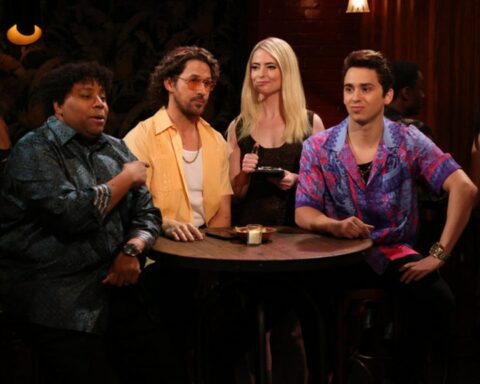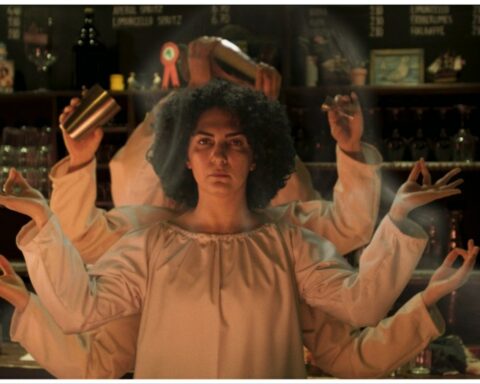
Dubbed as one of history’s most illustrious playwrights, Oscar Wilde’s vivacious wit and distinct stylistic approach to drama has left an indelible mark on the world of theatre. Born on October 16, 1854, in Dublin, Ireland, Wilde was a man of many talents – a poet, an essayist, a critic, but it’s his fame as a playwright that truly defines his enduring legacy. Authoring timeless classics such as ‘The Importance of Being Earnest’ and ‘An Ideal Husband’, Wilde’s name is synonymous with the golden age of theatre
In this article, we delve deeper into the heart of Wilde’s theatrical genius – his monologues. These captivating speeches delivered by characters within his plays reveal Wilde’s profound understanding of human nature, his penchant for social commentary, and his unmatched prowess in creating compelling dramatic moments. We have selected ten powerful monologues from different plays penned by Wilde, each offering a unique insight into the writer’s craft, the character’s psyche, and the overarching themes of the plays. Our journey will take us through famous works like ‘The Importance of Being Earnest’ to lesser-known gems like ‘The Duchess of Padua’.
Join us as we immerse ourselves in the timeless wit and wisdom of Oscar Wilde’s monologues, exploring their profound depth, enduring charm, and their immense relevance in contemporary theatre.

“Art is the most intense mode of individualism that the world has known.”
— Oscar Wilde
An Ideal Husband
– In this play, the character Lord Goring delivers a moving monologue about truth, honor, and love. This powerful speech highlights Wilde’s ability to weave profound thoughts into his dialogues. It captures the complexity of Lord Goring’s character while underlining the play’s themes of morality and forgiveness
Lord Goring:
Lady Chiltern, allow me. You wrote me a letter last night in which you said you trusted me and wanted my help. Now is the moment when you really want my help, now is the time when you have got to trust me, to trust in my counsel and judgment. You love Robert. Do you want to kill his love for you? What sort of existence will he have if you rob him of the fruits of his ambition, if you take him from the splendour of a great political career, if you close the doors of public life against him, if you condemn him to sterile failure, he who was made for triumph and success? Women are not meant to judge us, but to forgive us when we need forgiveness. Pardon, not punishment, is their mission. Why should you scourge him with rods for a sin done in his youth, before he knew you, before he knew himself? A man’s life is of more value than a woman’s. It has larger issues, wider scope, greater ambitions. A woman’s life revolves in curves of emotions. It is upon lines of intellect that a man’s life progresses. Don’t make any terrible mistake, Lady Chiltern. A woman who can keep a man’s love, and love him in return, has done all the world wants of women, or should want of them.
Age: 30s 40s
Gender: Male
From: Monologues From Plays
Type: Drama
One minute monologue: No
Lady Windermere’s Fan
– The monologue delivered by Lady Windermere is a perfect example of Wilde’s wit and wisdom. The character’s reflections on good and bad people are both humorous and thought-provoking, offering a deep exploration of the play’s themes of appearances and societal judgments.
LADY WINDERMERE. How horrible! I understand now what Lord Darlington meant by the imaginary instance of the couple not two years married. Oh! it can’t be true–she spoke of enormous sums of money paid to this woman. I know where Arthur keeps his bank book- -in one of the drawers of that desk. I might find out by that. I WILL find out. [Opens drawer.] No, it is some hideous mistake. [Rises and goes C.] Some silly scandal! He loves ME! He loves ME! But why should I not look? I am his wife, I have a right to look! [Returns to bureau, takes out book and examines it page by page, smiles and gives a sigh of relief.] I knew it! there is not a word of truth in this stupid story. [Puts book back in dranver. As the does so, starts and takes out another book.] A second book- -private–locked! [Tries to open it, but fails. Sees paper knife on bureau, and with it cuts cover from book. Begins to start at the first page.] ‘Mrs. Erlynne–600 pounds–Mrs. Erlynne–700 pounds–Mrs. Erlynne–400 pounds.’ Oh! it is true! It is true! How horrible! [Throws book on floor.] [Enter LORD WINDERMERE C.]
Age: 20s 30s
Gender: Female
From: Monologues From Plays
Type: Comedy
One minute monologue: No
A Woman Of No Importance
The character Mrs. Arbuthnot’s monologue is a raw, emotional plea to her son. It portrays Wilde’s ability to create dramatic, heart-wrenching scenes while tackling themes of motherhood, sacrifice, and societal expectations
MRS. ARBUTHNOT: I will never stand before God’s altar and ask God’s blessing on so hideous a mockery as a marriage between me and George Harford. I will not say the words the Church bids us to say. I will not say them. How could I swear to love the man I loathe, to honour him who wrought you dishonor, to obey him who, in his mastery, made me to sin? No; marriage is a sacrament for those who love each other. It is not for such as him, or such as me. Gerald, to save you from the world’s sneers and taunts I have lied to the world. For twenty years I have lied to the world. I could not tell the truth. No, Gerald, no ceremony, Church-hallowed or State-made, shall ever bind me to George Harford. [Pause.] Men don’t understand what mothers are. I am no different from other women except in the wrong done me and the wrong I did, and my very heavy punishments and great disgrace. And yet, to bear you I had to look on death. To nurture you I had to wrestle with it. Death fought with me for you. All women have to fight with death to keep their children. Death, being childless, wants our children from us. Gerald, when you were naked I clothed you, when you were hungry I gave you food. Night and day all that long winter I tended you. No office is too mean, no care too lowly for the thing we women love–and oh! how I loved you! And you needed love, for you were weakly, and only love could have kept you alive. Only love can keep any one alive. And boys are careless often, and without thinking give pain, and we always fancy that when they come to man’s estate and know us better they will repay us. But it is not so. The world draws them from our side, and they make friends with whom they are happier than they are with us, and have amusements from which we are barred, and interests that are not ours; and they are unjust to us often, for when they find life bitter they blame us for it, and when they find it sweet we do not taste its sweetness with them. . . . You made many friends and went into their houses and were glad with them, and I, knowing my secret, did not dare to follow, but stayed at home and closed the door, shut out the sun and sat in darkness. My past was ever with me. . . . And you thought I didn’t care for the pleasant things of life. I tell you I longed for them, but did not dare to touch them, feeling I had no right. You thought I was happier working amongst the poor. That was my mission, you imagined. It was not, but where else was I to go? The sick do not ask if the hand that smooths their pillow is pure, nor the dying care if the lips that touch their brow have known the kiss of sin. It was you I thought of all the time; I gave to them the love you did not need; lavished on them a love that was not theirs. . . . And you thought I spent too much of my time in going to Church, and in Church duties. But where else could I turn? God’s house is the only house where sinners are made welcome, and you were always in my heart, Gerald, too much in my heart. For though day after day, at morn or evensong, I have knelt in God’s house, I never repented of my sin. How could I repent of my sin when you, my love, were its fruit. Even now that you are bitter to me I cannot repent. I do not. You are more to me than innocence. I would rather be your mother–oh! much rather!–than have been always pure. . . . Oh, don’t you see? don’t you understand! It is my dishonour that has made you so dear to me. It is my disgrace that has bound you so closely to me. It is the price I paid for you–the price of soul and body–that makes me love you as I do. Oh, don’t ask me to do this horrible thing. Child of my shame, be still!
Age: 40s 50s 60s
Gender: Female
From: Monologues From Plays
Type: Comedy
One minute monologue: No
Vera; or, The Nihilists
CZAR: Then I banish you for your bad jokes. Bon voyage Messieurs. If you value your lives you will catch the first train for Paris. [Exeunt Ministers.] Russia is well rid of such men as these. They are the jackals that follow in the lion’s track. They have no courage themselves except to pillage and rob. But for these men and for Prince Paul my father would have been a good king, would not have died so horribly as he did die. How strange it is, the most real parts of one’s life always seem to be a dream! The council, the fearful law which was to kill the people, the arrest, the cry in the court-yard, the pistol-shot, my father’s bloody hands, and then the crown! One can live for years sometimes without living at all, and then all life comes crowding into one single hour. I had no time to think. Before my father’s hideous shriek of death had died in my ears I found this crown on my head, the purple robe around me, and heard myself called a king. I would have given it up all then; it seemed nothing to me then; but now, can I give it up now? Well, Colonel, well?
Age: 40s 50s 60s
Gender: Male
From: Monologues From Plays
Type: Comedy
One minute monologue: No
VERA: Asleep! God, thou art good! Who shall deliver him from my hands now? This is he! The democrat who would make himself a king, the republican who hath worn a crown, the traitor who hath lied to us. Michael was right. He loved not the people. He loved me not. [Bends over him.] Oh, why should such deadly poison lie in such sweet lips? Was there not gold enough in his hair before, but he should tarnish it with this crown? But my day has come now; the day of the people, of liberty, has come! Your day, my brother, has come! Though I have strangled whatever nature is in me, I did not think it had been so easy to kill. One blow and it is over, and I can wash my hands in water afterwards, I can wash my hands afterwards. Come, I shall save Russia. I have sworn it. [Raises the dagger to strike.]
Age: 20s 30s 40s
Gender: Female
From: Monologues From Plays
Type: Comedy
One minute monologue: No
THE PICTURE OF DORIAN GRAY
DORIAN: This play was good enough for us, Harry. It was Romeo and Juliet. I must admit that I was rather annoyed at the idea of seeing Shakespeare done in such a wretched hole of a place. Still, I felt interested, in a sort of way. At any rate, I determined to wait for the first act. There was a dreadful orchestra, presided over by a young Hebrew who sat at a cracked piano, that nearly drove me away, but at last the drop-scene was drawn up, and the play began. Romeo was a stout elderly gentleman, with corked eyebrows, a husky tragedy voice, and a figure like a beer-barrel. Mercutio was almost as bad. He was played by the low-comedian, who had introduced gags of his own and was on most friendly terms with the pit. They were both as grotesque as the scenery, and that looked as if it had come out of a country booth. But Juliet! Harry, imagine a girl, hardly seventeen years of age, with a little flower-like face, a small Greek head with plaited coils of dark-brown hair, eyes that were violet wells of passion, lips that were like the petals of a rose. She was the loveliest thing I had ever seen in my life. You said to me once that pathos left you unmoved, but that beauty, mere beauty, could fill your eyes with tears. I tell you, Harry, I could hardly see this girl for the mist of tears that came across me. And her voice–I never heard such a voice. It was very low at first, with deep, mellow notes, that seemed to fall singly upon one’s ear. Then it became a little louder, and sounded like a flute or a distant hautbois. In the garden scene it had all the tremulous ecstasy that one hears just before dawn when nightingales are singing. There were moments, later on, when it had the wild passion of violets. You know how a voice can stir one. Your voice and the voice of Sibyl Vane are two things that I shall never forget. When I close my eyes, I hear them, and each of them says something different. I don’t know which to follow. Why should I not love her? Harry, I do love her. She is everything to me in life. Night after night I go to see her play. One evening she is Rosalind, and the next evening she is Imogen. I have seen her die in the gloom of an Italian tomb, sucking the poison from her lover’s lips. I have watched her wandering through the forest of Arden, disguised as a pretty boy in hose and doublet and dainty cap. She has been mad, and has come into the presence of a guilty king, and given him rue to wear, and bitter herbs to taste of. She has been innocent, and the black hands of jealousy have crushed her reed-like throat. I have seen her in every age and in every costume. Ordinary women never appeal to one’s imagination. They are limited to their century. No glamour ever transfigures them. One knows their minds as easily as one knows their bonnets. One can always find them. There is no mystery in any of them. They ride in the Park in the morning, and chatter at tea-parties in the afternoon. They have their stereotyped smile, and their fashionable manner. They are quite obvious. But an actress! How different an actress is! Harry! why didn’t you tell me that the only thing worth loving is an actress?”
Age: 20s 30s
Gender: Male
From: Monologues From Plays
Type: Drama
One minute monologue: No
The Canterville Ghost
Scene 8: The Haunting Resumes – Sir Simon Monoologue
Receipt and yellow pad of rent terms are pinned on wall of hall. Twins pin up fake ghost on wall and run around the edge of set to hide. Sir Simon enters and grabs rent terms off wall.
Sir Simon: [Reading mockingly from paper] Dear Sir, As you know, we have recently purchased this
place from Lord Canterville. If you wish to remain here, we will be forced to collect rent. Please remit
payment before the end of this week. Thank you!
Sir Simon: What?! Who are these people? Charge me rent to live in my own home? It is I who ought to
be charging them rent! [rips paper in half and throws it to the floor]
Starts walking to library and then sees ghost scarecrow
Sir Simon: Ahh! A ghost! It’s a ghastly ghost!
Runs to his room
Sir Simon: Oh, what a terrible, horrible ghost! I swear, it was going to kill me!
Sir Simon: Wait, I have an idea. Maybe this ghost, this terrifying new phantom, can help me get rid of
the Otises. I’ll go talk to him.
Sir Simon: [Talking to himself] Talk to him? Are you mad? That thing would soon rip me up as listen to
me gab.
Sir Simon: How much damage could it really do? I mean, I’m already dead. I shall go forth and talk
business!
Enters stage gingerly.
Sir Simon: Uh, Lord Ghost? Morning, Sir. [pokes with finger] I’m Sir Simon de Canterville, and I’ve
haunted this place for over 300 years, but I don’t think I’ve ever had the pleasure of making your
acquaintance. How do you do? [shakes hand, which comes off]
Sir Simon: Ahh! [Staggers backwards]
Sir Simon: Uhh, Sir, I’m sure you know what a danger this Otis family is.
Sir Simon: Hey, wake up, you there! Come on, I don’t have all night! [Grabs arm and the whole ghost
comes down]
Sir Simon: Sorry Sir, I guess I can be a little rough sometimes. Are all right?
Sir Simon: Gah! What’s this!? [Holds up sign and reads] “Ye Otis Ghoste. Ye Onlie True and Origionale
Spook. Beware of Ye Imitationes. All others are Counterfeite.”
Sir Simon: I have been outwitted? Never! That Otis family will pay for this.
Twins enter and attack with pea-shooters.
Lewis: Boo!
Clark: Boo!
Lewis and Clark: Ghost Noises
Sir Simon: You rascals! [Holds up ghost] Was this your idea!? I’ll get you yet!
Twins chase Sir Simon off stage
Age: 30s 40s 50s
Gender: Male
From: Monologues From Plays
Type: Comedy
One minute monologue: No
THE HAPPY PRINCE
From the Oscar Wilde fairy tale about a statue of a former prince
Boy, Age 8 to 14
PRINCE: Swallow, Swallow, little Swallow, far away across the city I see a young man in a garret. He is leaning over a desk covered with papers, and in a tumbler by his side there is a bunch of withered violets. He has large and dreamy eyes. He is trying to finish a play for the Director of the Theatre, but he is too cold to write any more. There is no fire in the grate, and hunger has made him faint. Alas! I no longer have rubies to give him. My eyes are all that I have now. They are made of rare sapphires, which were brought out of India a thousand years ago. Pluck out one of them and take it to him. He will sell it to the jeweler, and buy firewood, and finish his play. Swallow, Swallow, little Swallow, do not weep so. Do as I command you and pluck out my eye.
Age: Teens
Gender: Male
From: Monologues From Plays
Type: Comedy
One minute monologue: No
THE DUCHESS OF PADUA
DUCHESS: Better for me I had not seen your face.
O think it was for you I killed this man.
[GUIDO recoils: she seizes his hands as she kneels.]
Nay, Guido, listen for a while:
Until you came to Padua I lived
Wretched indeed, but with no murderous thought,
Very submissive to a cruel Lord,
Very obedient to unjust commands,
As pure I think as any gentle girl
Who now would turn in horror from my hands–
You came: ah! Guido, the first kindly words
I ever heard since I had come from France
Were from your lips: well, well, that is no matter.
You came, and in the passion of your eyes
I read love’s meaning, everything you said
Touched my dumb soul to music, and you seemed
Fair as that young Saint Michael on the wall
In Santa Croce, where we go and pray.
I wonder will I ever pray again?
Well, you were fair, and in your boyish face
The morning light seemed to lighten, so I loved you.
And yet I did not tell you of my love.
‘Twas you who sought me out, knelt at my feet
As I kneel now at yours, and with sweet vows,
Whose music seems to linger in my ears,
Swore that you loved me, and I trusted you.
I think there are many women in the world
Who had they been unti this vile Duke mated,
Chained to his side, as the poor galley slave
Is to a leper chained,–ay! many women
Who would have tempted you to kill the man.
I did not. Yet I know that had I done so,
I had not been thus humbled in the dust.
[Stands up.]
But you have loved me very faithfully.
[After a pause approaches him timidly.]
I do not think you understand me, Guido:
It was for your sake that I wrought this deed
Whose horror now chills my young blood to ice,
For your sake only.
[Stretching out her arm.]
Will you not speak to me?
Love me a little: in my girlish life
I have been starved for love, and kindliness
Has passed me by.
Age: 20s 30s
Gender: Female
From: Monologues From Plays
Type: Drama
One minute monologue: No
The Importance Of Being Ernest
In his state of annoyance at Algernon’s seeming fondness for Cecily, Jack seeks Lady Bracknell’s intervention with her nephew.
Jack:
It pains me very much to have to speak frankly to you, Lady Bracknell, about your nephew, but the fact is that I do not approve at all of his moral character. I suspect him of being untruthful. I fear there can be no possible doubt about the matter. This afternoon during my temporary absence in London on an important question of romance, he obtained admission to my house by means of the false pretence of being my brother. Under an assumed name he drank, I’ve just been informed by my butler, an entire pint bottle of my Perrier-Jouet, Brut, ’89; wine I was specially reserving for myself. Continuing his disgraceful deception, he succeeded in the course of the afternoon in alienating the affections of my only ward. He subsequently stayed to tea, and devoured every single muffin. And what makes his conduct all the more heartless is, that he was perfectly well aware from the first that I have no brother, that I never had a brother, and that I don’t intend to have a brother, not even of any kind. I distinctly told him so myself yesterday afternoon.
Cecily encounters Algernon, who she is under the impression is Ernest. During their meeting, Algernon professes his affection towards her, to which Cecily responds by divulging that her love for him has been blossoming during his time away.
Cecily:
You silly boy! Why, we have been engaged for the last three months. It will be exactly three months on Thursday. Ever since dear Uncle Jack first confessed to us that he had a younger brother who was very wicked and bad, you of course have formed the chief topic of conversation between myself and Miss Prism. And of course a man who is much talked about is always very attractive. One feels there must be something in him, after all. I daresay it was foolish of me, but I fell in love with you, Ernest. The engagement was actually settled on the 14th of February last. Worn out by your entire ignorance of my existence, I determined to end the matter one way or the other, and after a long struggle with myself I accepted you under this dear old tree here.
Oscar Wilde Monologues FAQ’s
What are some key themes present in Oscar Wilde monologues?
Oscar Wilde often dealt with themes of love, self-realization, redemption, and societal norms in his works. His monologues often reflect these themes, presenting characters who grapple with their emotions, struggle with their identities, or wrestle with moral dilemmas. The themes are often presented with irony and wit, characteristic of Wilde’s writing style
Which literary devices does Oscar Wilde frequently use in his monologues?
Wilde frequently used literary devices such as metaphors, irony, and wit in his works. In his monologues, he often used these devices to enhance the dramatic effect, reveal character personalities, and highlight his themes
Are there any controversial elements in Oscar Wilde’s monologues?
Oscar Wilde was known for his controversial ideas, often challenging societal norms of his time. His monologues sometimes mirrored this controversy, reflecting Wilde’s own views on subjects like love, morality, and societal constraints
What can we learn from Oscar Wilde monologues?
Wilde’s monologues often explore the complexities of human nature and society. They provide insights into his views on love, self-realization, and societal norms. They also showcase his distinct style, characterized by wit, irony, and clever use of language
Where can I find examples of Oscar Wilde monologues?
Monologues from Oscar Wilde can be found in his plays, such as “The Importance of Being Earnest,” “An Ideal Husband,” and “Lady Windermere’s Fan.” These works are widely available in libraries and online.
Similar Articles:







